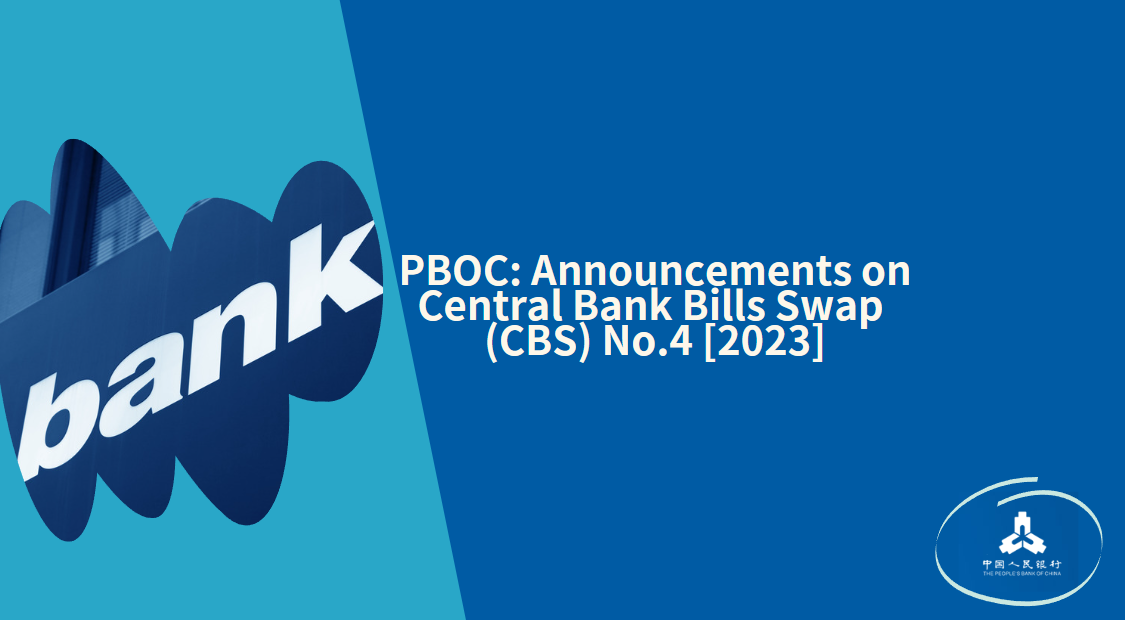Swap Connect seen attracting new investors
The much-anticipated northbound trading of the Swap Connect is likely to start in the coming months as relevant rules were finalized — and it will facilitate the access of overseas investors to onshore interest rate swaps, experts said.
The connection mechanism marks another milestone in China's capital market opening-up, and is poised to help overseas investors better manage interest rate risks and attract more foreign investment into the onshore bond market, they said.
They commented after the People's Bank of China, the country's central bank, unveiled a set of interim rules on Friday about northbound trading of the Swap Connect, whereby overseas investors in the country's interbank bond market can participate in the trading of interbank financial derivatives.
The interim rules, which took effect on Friday, stipulate that the derivatives available via the connection mechanism initially will be interest rate swaps, using the renminbi for bidding, trading and settlement.
Market sources said there is no clear indication yet exactly when the northbound trading will start, but some media reports hinted the launch could be in June, possibly preceded by technical trials.
The northbound connect will be subject to a daily net trading quota of 20 billion yuan ($2.89 billion) and a clearing quota of 4 billion yuan, the PBOC said, adding that it will enrich the types of eligible derivatives and adjust the quotas based on market situation.
Market infrastructure providers, including the National Interbank Funding Center and the Shanghai Clearing House, also unveiled supportive rules for the connection mechanism on Friday.
"The release of the PBOC's regulation and the supportive rules suggest that northbound trading of the Swap Connect — a long-awaited important connection mechanism — may soon be officially launched," Su Meng, a partner at international law firm King & Wood Mallesons, said in a research note.
Northbound trading of the Swap Connect will help meet growing demand from overseas investors to access the onshore derivatives market to manage the interest rate risks associated with their rising investments in the onshore bond market, experts said.
As overseas investors invest more in China's bond market, their demand for tools to hedge against interest rate risks has increased, making the Swap Connect a timely move, said Zhang Jinqiu, executive vice-president and co-head of markets and securities services at HSBC China.
According to the PBOC's Shanghai Head office, overseas institutions held 3.21 trillion yuan worth of bonds in the onshore interbank market by the end of March, up from 2.31 trillion yuan by the end of April 2020, when the office started to release the figures.
Zhang said the connect will mark a key step for China's bond market opening-up to expand from the spot trading of bonds into derivatives trading, which will facilitate overseas investors' risk management, smooth cross-border capital flows and improve clearing efficiency.
Apart from aiding overseas investors' risk management, the Swap Connect will also boost Hong Kong's role as an important offshore renminbi market and strengthen its status as an international financial center, said Zhou Maohua, an analyst at China Everbright Bank.
Eddie Yue, chief executive of the Hong Kong Monetary Authority, said last month that regulators in the mainland and Hong Kong will work closely to kick off trading through the Swap Connect as soon as possible to provide overseas investors in the onshore bond market with an effective tool to hedge against interest rate risks.
Authorities in the mainland and Hong Kong will also study starting southbound trading of the Swap Connect when appropriate, according to the PBOC.
Li Bing, head of Asia-Pacific at Bloomberg, said the Swap Connect promises to be a win for both domestic and overseas market participants.
"The wider array of derivatives available to investors via the Swap Connect will stimulate increased foreign participation in the Chinese market while creating important opportunities for onshore market makers," Li said.
Jiang Xueqing contributed to this story.






















































First, please LoginComment After ~